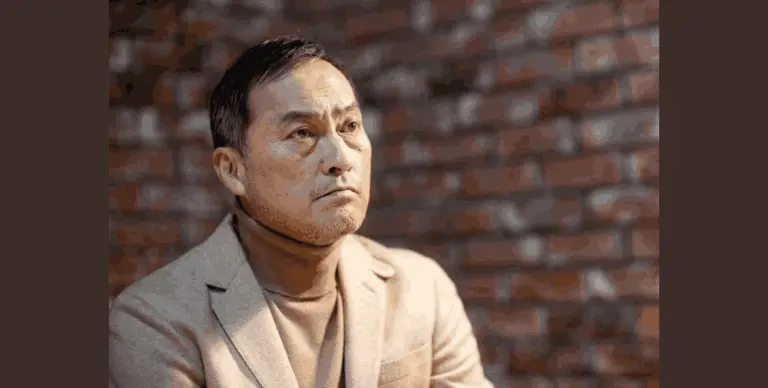Autobiography of Mato
Mako, born Makoto Iwamatsu on December 10, 1933, in Kobe, Japan, was a trailblazing Japanese-American actor whose impact on film, television, and theater resonates to this day. Renowned for his versatility, talent, and commitment to breaking barriers, Mako’s journey from a small island in Japan to the stages and screens of Hollywood is a testament to the power of perseverance and passion in the face of adversity.
Raised by parents deeply immersed in the world of art and literature, Mako’s early years were shaped by the rich cultural heritage of Japan. However, political turmoil led his family to seek refuge in the United States, where Mako would later embark on a remarkable career that would span over five decades.
From his humble beginnings to his rise as a celebrated actor, Mako’s story is one of resilience, determination, and unwavering dedication to his craft. As we delve into the life and legacy of this iconic figure, we uncover not only the extraordinary talent that captivated audiences around the world but also the enduring spirit of a man who dared to dream beyond borders and boundaries.
Early Life and Education
Makoto Iwamatsu, famously known as Mako, was born in Kobe, Japan, on December 10, 1933. His parents, Tomoe Sasako and Atsushi Iwamatsu, were renowned children’s authors and illustrators, also known as Mitsu and Taro Yashima. However, their involvement in political activism led them to move to the United States in 1939, leaving Mako in the care of his grandmother.
Growing up in Kobe, Mako’s early years were shaped by the rich cultural tapestry of Japan. Despite the challenges of being separated from his parents during his formative years, Mako found solace and inspiration in the natural beauty of the island and the vibrant traditions of his homeland.
Pursuing a Passion for Performance
From a young age, Mako showed a keen interest in dramatic arts. His exposure to his parents’ work as artists, combined with his own experiences, ignited a passion for storytelling and performance. Despite the financial uncertainties associated with pursuing a career in the arts, Mako’s determination to follow his dreams remained steadfast.
Journey to America and Military Service
In 1949, at the age of fifteen, Mako was finally reunited with his parents in the United States. Settling in New York City, he faced the challenges of adapting to a new culture and overcoming racial discrimination. Despite these obstacles, Mako pursued his education at the Pratt Institute School of Architecture while working in his father’s print shop.
Mako’s life took a significant turn when he enlisted in the United States Army in 1953, serving until 1955. Stationed in Korea and Japan with the Special Services division, he discovered his talent for acting while performing in plays for fellow soldiers. This experience marked the beginning of his journey into the world of theater.
Rise to Prominence in Film and Theater
After completing his military service, Mako pursued formal training in acting at the Pasadena Playhouse. He later co-founded the groundbreaking East West Players theater company, aimed at providing opportunities for Asian-American actors and showcasing diverse stories on stage.
Mako’s breakthrough in film came with his role as Po-Han in the 1966 film “The Sand Pebbles,” for which he received Academy Award and Golden Globe nominations for Best Supporting Actor. His diverse range of roles in both film and television showcased his versatility as an actor, from historical dramas to martial arts epics.
Legacy and Impact
Throughout his prolific career, Mako remained a trailblazer for Asian-American representation in the entertainment industry. His work on stage and screen challenged stereotypes and paved the way for future generations of actors and artists.
Mako’s legacy extends beyond his artistic achievements. As a co-founder of the East West Players and a vocal advocate for diversity in the arts, he left an indelible mark on the industry. His commitment to storytelling, cultural exchange, and social justice continues to inspire audiences around the world.
Personal Life and Remembering Mako
Outside of his professional endeavors, Mako was a devoted husband to actress Shizuko Hoshi and a loving father to their two daughters. His family remained a source of strength and support throughout his life and career.
Mako’s passing on July 21, 2006, from esophageal cancer left a void in the entertainment world. However, his contributions endure through the timeless characters he brought to life and the impact he made on generations of artists and audiences alike. As we remember Mako, we honor not only his extraordinary talent but also his enduring spirit and legacy of excellence.
FAQ’s
Who was Mako?
Mako, born Makoto Iwamatsu, was a Japanese-American actor renowned for his contributions to film, television, and theater. He was known for his versatility, talent, and pioneering efforts in promoting Asian-American representation in the entertainment industry.
What were some of Mako’s notable roles?
Mako’s career included a wide range of roles, from his Academy Award-nominated performance as Po-Han in “The Sand Pebbles” to his portrayal of Aku in “Samurai Jack” and Uncle Iroh in “Avatar: The Last Airbender.” He appeared in over 165 productions throughout his career.
What impact did Mako have on the entertainment industry?
Mako was a trailblazer for Asian-American actors, co-founding the East West Players theater company to provide opportunities for diverse voices on stage. His work helped challenge stereotypes and pave the way for greater representation in film, television, and theater.
What challenges did Mako face in his career?
Like many Asian-American actors of his time, Mako faced racial discrimination and limited opportunities in Hollywood. However, he persevered, forging a path for himself and future generations of artists.
What was Mako’s legacy?
Mako’s legacy extends far beyond his acting roles. As a co-founder of the East West Players and a vocal advocate for diversity in the arts, he left an indelible mark on the industry. His commitment to storytelling, cultural exchange, and social justice continues to inspire artists and audiences worldwide.
How did Mako pass away?
Mako passed away on July 21, 2006, at the age of 72, from esophageal cancer. Despite his untimely death, his impact on the entertainment industry lives on through his memorable performances and enduring influence.






